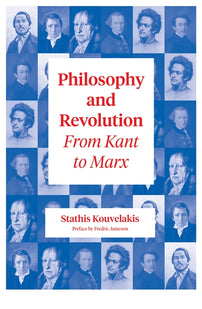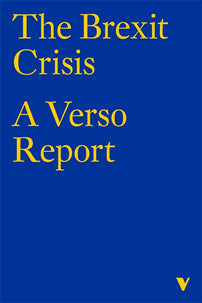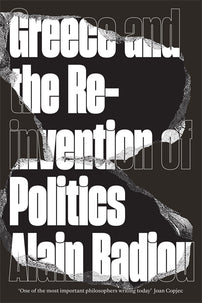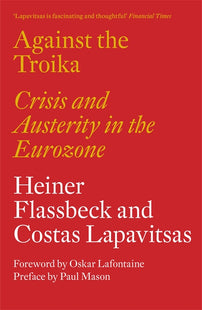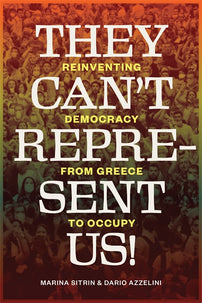Beyond left-wing melancholia. Reflections on a militant trajectory
Even in times of defeat, the class struggle continues. Everything is not possible at all times, but there are always forks in the road and opportunities – all too often missed – for the forces of popular emancipation. Reflecting on the lessons of the student movement of 1986 and the shattered 'Greek Spring', Stathis Kouvelakis sketches a way forward for the left in 2022.
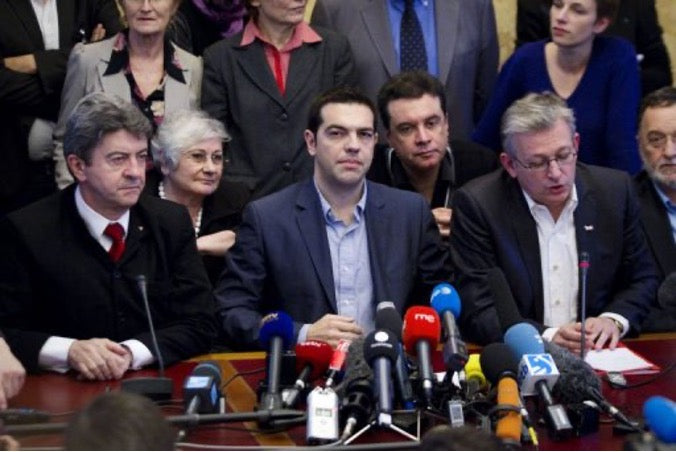
Politicizing defeat
Like any militant of my generation of the radical and communist left, who started his activism at the very end of the 1970s and was twenty years old amid the ‘great nightmare of the 1980s’ (François Cusset)[i], I was basically educated in and by defeats. This process, however, was neither linear nor homogeneous. The political temporality of Greece in the ten or fifteen years following the fall of the colonels’ dictatorship (1967-74) differed significantly from that of countries like France or Italy (not to mention Northern Europe). In simple terms, the 1970s were years of euphoria and left radicalisation among large sections of society, especially the youth. This wave subsided in the following decade, with the arrival of the Greek socialists in power (October 1981) and the establishment of a certain normalisation, but without the sense of defeat that overwhelmed everywhere else. Moreover, the radical left – overwhelmingly communist – managed to maintain significant positions in several social sectors (student and high-school youth, trade unions, culture) as well as at the electoral level. Despite its minority position, it enjoyed great moral prestige, the result of the long bloody persecution endured by its militants and the prominent role they had played in the popular resistance to fascism, imperialism, and the regime of exception established during the civil war and lasting until the fall of the dictatorship. Therefore, leaving Greece in 1983 to study in France was a real shock for me, and I wonder if, despite all the years that have passed, it does not continue to shape my reflections and action.
Those terrible 1980s, particularly in France, undoubtedly saw a great setback on all levels: the neoliberal turn and the reneging of the left in power, the disintegration of the workers’ movement and the fracturing of the popular classes, the decline of the French Communist Party, the only party with real working-class and social roots in French history, the unprecedented collapse of intellectual debate following the hegemony of a Cold War liberalism, and the retreat – almost without a fight – of all critical thought, starting with Marxism, which had been its backbone, especially in France, during the ‘short twentieth century’ (1914-89). The ‘fall of the Berlin Wall’ and the end of the USSR are usually mentioned as the dates that marked this turning point, but, in reality, these events, to which we must add China’s capitalist turn, only sealed an evolution that was already well under way after a decade of neoliberal counter-revolution on a global scale.
There is, however, another way of looking at this same period, which I must also link to moments in my own political trajectory. Because, even in times of defeat, the class struggle continues. It is even particularly ferocious when the ruling classes break the previous social equilibrium and go on the offensive. But it is also, and for the same reasons, partly ‘invisible’, being so massively repressed by the dominant discourse, that of the ruling classes (and their ideologists) eager for revenge, determined to liquidate all the concessions snatched from them in the course of previous decades. There is therefore a whole work of reconstruction to be done, which is not a work of ‘memorial’, as has flooded the academic and media field for many years, but a political approach whose aim is to pierce the thick silence that, even more than distortions and biases of all kinds, surrounds the everyday course of popular struggles, in particular those of working people.
I played a modest part in this exercise in the 2000s, with a series of texts focused on the years 1986 to 2006 grouped together in a collection published in French in 2007 under the title France in Revolt. Political Cycles and Social Struggle.[ii] My aim was to show that this whole period had been marked by important social struggles which, contrary to what many people say, were not simply a matter of ‘resistance’, even if they were essentially defensive. To put it another way, I wanted to counter the idea that the only possible response in that context consisted in exemplary acts of some kind, with an essentially ethical (or even aesthetic) content, leading to fragmented practices, pure singularities deprived of any historical depth and without any lasting effect on the overall balance of forces. On the contrary, I wanted to show that these struggles had real stakes, that they did indeed have an impact on the course of events, and that taking them into account is essential for understanding the period.
Undertaking such work seemed and still seems to me to be politically decisive, as it allows us to concretely assess the possibilities of a certain situation, to evaluate with maximum lucidity failures and successes – in short, to make tangible the idea that even in moments of downturn history is not written in advance, and that, even if not everything is possible at all times, there are always forks in the road and opportunities – all too often missed, it is true – for the forces of popular emancipation.
[book-strip index="1" style="display"]The student movement of November-December 1986
To make the above more concrete, I will take two examples from my activist experience, which relate respectively to specific moments in France and Greece, countries in which I was directly involved in political action. I will start with the case of a partial but significant victory, the student and high-school movement of 1986 against the Devaquet law.[iii] It is still remembered today because the government of the time was obliged to withdraw the bill – the first real attempt to introduce selection and university fees in France – and also because the demonstration of 4 December 1986, the high point of the movement, ended in savage police repression leading to the death of Malik Oussekine.
Even if rarely mentioned, the effects of this movement are still with us thirty-five years later. On the one hand, successive French governments, despite all implementing neoliberal policies, have not managed to challenge free and relatively non-selective access to university. Certainly, a wedge was driven in with the ‘Bologna process’, decided at the level of the European Union, and then with the law on ‘university autonomy’ (2007), all reforms that put higher education on the tracks of neoliberalism. Macron took up the torch of Devaquet, with the introduction of Parcoursup[iv] and exorbitant registration fees for students from outside the European Union, the first step towards their generalisation. However, having taught for 20 years at a British university, I can say that there is still a long way to go in France before we reach the fully marketized and entrepreneurial model of the English-speaking countries.
Thanks to the 1986 student protests, we managed to gain time, three or four decades, the equivalent of several generations to have benefited from a certain democratization of access to university, which is no mean feat. On the other hand, after the death of Malik Oussekine, governments were wary of a similar event happening again. This drew a kind of red line in terms of police repression against social movements and street demonstrations. Here, again, it was not until the recent period, with the repression of the movement against the labour law in 2016 and the peak reached during the Gilets Jaunes mobilizations and its trail of maimed and injured, that this line was put in question.
When we take stock of this period, we can see that, in the wake of the student movement of 1986, social movements in France were able to achieve some partial successes, the most significant being the withdrawal of the reform of retirement regimes in 1995, then that of the CPE[v] in 2006. Even Macron, the most determined neoliberal of all presidents to date, was forced to stall on his pension reform project, and this step back was not only due to the Covid pandemic. Without the powerful mobilizations of December 2019 and January 2020, the reform would have passed like a shot. Of course, all this was not enough to stop neoliberalism, for which a political alternative would have been needed, which, as we know, was lacking. But France remains a country where the challenge to the neoliberal model has been strong, and this has enabled certain social conquests to be better preserved than elsewhere.
However, if I mention the 1986 movement, it’s not only because of its own importance, but also because it was the first experience of large-scale mobilisation in which I was involved. To join in a mass movement is certainly a major experience, which allows a deeper understanding of the mechanism that triggers this sort of phenomena. As far as I remember, this is how I experienced things. The Chirac government, freshly elected in the March 1986 legislative elections, had prepared its higher education reform during the summer, as governments usually do for this kind of measures. So, we knew what we were getting into as soon as the university year started. At the time, I was a member of the Union of Communist Students (linked to the PCF) and a union activist in the UNEF Solidarité Étudiante, which later merged with the so-called “independent and democratic” UNEF, dominated by socialists and Trotskyists, to form the current UNEF [National Union of Students of France].
We started leafleting and informing students along with the other left-wing trade-union and student organisations. At the University of Nanterre, from October onwards, we convened one general assembly after another, but despite our efforts their success was mediocre. There were only between 100 and 200 of us, and the movement didn’t really take off in the other universities either, at least in the Paris region. Disappointed by the passivity of the students, there was a general assembly at the end of November that I didn’t go to. The next day, a comrade called me: ‘You’ve really missed something, the big Nanterre amphitheatre [with a capacity of 2,000 people] was packed, we voted for a strike, etc.’ Something had clicked.
Why was this? Sartre talks about the passage from a state of atomization (which he calls seriality) to a state where a group is constituted by uniting in a common action. He explains this by two mechanisms. The first, essentially reactive, consists of an awareness of a serious and imminent threat – if we don’t move, it will affect us directly. There was indeed a moment when the Devaquet reform became very concrete: from the next year onwards, selection would be coming to the university, both by results and by money, and we didn’t want that. In the end, it’s always the adversary who creates the conditions for collective action to take shape. It’s the ruling classes that provoke revolutions, because they misunderstand the ‘long patience of the people’ that the historian of the French Revolution Sophie Wahnich[vi] talks about, they think it will always last. It is true that it takes a lot before this patience breaks.
The second mechanism that leads to the constitution of a group is mimetic: at first, you imitate the behaviour of someone else, you know someone who is going to the general assembly and you follow them. You get caught up in something that you’re confused about at first, but then it takes hold of you, you sense that it’s going to be big and can have an effect. Then, of course, other, more controlled processes take place: discussion, agreement on shared objectives, means of action, the emergence of a form of leadership, etc. But nothing can happen if this first step is not taken. Big explosions may seem spontaneous but they are never completely so: for something to be triggered, there must already be the embryo of a collective response – in this case, the preparatory work we had done – which is why Sartre says that absolute spontaneity does not exist. Every concrete situation is made up of a mixture of seriality and groups, which are more or less constituted, more or less sclerosed. But there is no guarantee that anything will come out of it in terms of collective action. Anyone involved in long-term militant practice knows this well: we have these kinds of (seemingly) miraculous surprises and we also have a lot of disappointments because very often, despite our obstinacy, things don’t work out.
During the 1986 movement, the Chirac government got scared and retreated, but this required the death of Malik Oussekine under the blows of the CRS and the images of police brutality on 4 December. In the aftermath, there were some walkouts in the public services and companies, then a strike call by the trade-union confederations, so the beginning of a junction with the workers’ movement. Suddenly, the atmosphere changed, the spectre of 1968 – which Chirac and his advisers had lived through – resurfaced, and to calm people down the Devaquet law was immediately withdrawn. Social protest resurfaced later, in the 1986-1988 years, with the strikes of the railway workers and the RATP (Paris metro), the movements of nurses and of workers in factories like Snecma. This social unrest had a significant impact on the political situation and enabled the right to be ousted from power in 1988, which had been hardly imaginable two years earlier, given the disappointment of the left’s first five-year term. Of course, it was still Mitterrand and another Socialist Party government came in, as there was nothing else on hand, but the most brutal version of neoliberalism, that of a French-style Thatcherism, was removed for a time. It was not until Sarkozy that a ‘right without complexes’ began to present itself as such again, largely as a reaction to the slowing down of the neoliberal restructuring that social struggles had managed to impose.
So, social struggles are really effective, but not enough on their own to change the coordinates of a situation. For that, you need a political alternative. For this to emerge, it must be nourished by struggles and collective experience, otherwise it remains disembodied, abstract, and does not become a real force. If it is therefore appropriate to criticise what Daniel Bensaïd called the ‘social illusion’, the belief in the self-sufficiency of movements, even if we should not simply negate their impact, as Alain Badiou does by assimilating them to a “strictly negative” movementism. For negation itself contains the seed, however vague, of something positive, or affirmative, which can in turn act as a stimulant and a vector for broadening the horizon of the possible. To put it simply, the renewal of a truly revolutionary, emancipatory politics is certainly something more than “movementism”, but it cannot take place in a vacuum or in the pure sphere of eternal Truths; it presupposes a constant interaction with the living experience of the struggles of the oppressed.
The shattered Greek Spring
I have continued my political activism throughout the three and half decades since that movement. But, rather than retrace this sequence, I will limit myself to a single moment, the one that has certainly had the greatest impact on me because of my personal involvement, but which also seems to me to have a broader scope. This was the five years (2010-15) of the ‘Greek Spring’, a sequence that was exceptionally rich and intense, yet ended in a crushing defeat, the capitulation of the Syriza government to the diktat of the European Union in July 2015. I was a member of this party and even a member of its central committee between 2012 and 2015. I therefore experienced defeat from a position of responsibility, which makes it all the more necessary to reflect on the meaning of events and to explain them, both to oneself and to others. This raises the inevitable questions: Why did things happen as they did? Was the outcome inevitable? Where does responsibility lie?
Let me start by briefly recalling the context. In the spring of 2010, Greece was facing a crisis related to the size of its public debt and budget deficits, which excluded it from the financial markets. As there was no question of the government confronting the markets, the only solution was to ask for ‘help’ from its EU ‘partners’. The EU called on the IMF to form the (in)famous ‘Troika’ of creditors (EU, European Central Bank and IMF). It granted loans to refinance the debt but under draconian conditions, formalized in two monstrous Memoranda hastily adopted by the Greek parliament in May 2010 and February 2012 respectively. A real ‘shock therapy’ was imposed on the country, such as had only been experienced by the over-indebted countries of the South and the countries of the former Soviet bloc: an explosive mixture of brutal austerity, deregulation of all kinds, privatization and the placing of its economic and social policy under close foreign supervision for years, even decades, to come.
Immediately, impressive popular mobilizations erupted, the largest the country had seen since the 1970s – notably the Syntagma Square movement of spring 2011 and no fewer than thirty-four 48-hour general strikes across the first two years of the austerity plans. These mobilizations were met with a wall of refusal and repression, but they shook to the ground the established political system based on the alternation of power between the conservative right and PASOK, a socialist party converted to neoliberalism. A radical left party, Syriza, which had never won more than 5% of the vote until then, entered the breach, pledged to break from the iron cage of austerity and supervision. In the two elections of spring 2012, Syriza obtained 17%, then 27%, barely two points behind the right and far ahead of PASOK, which collapsed from 44% in 2009 to 12%. The momentum was irresistible, and fewer than three years later, Syriza won the 2015 January elections, coming within one seat of a majority in parliament, and formed a government in alliance with Anel, a small right-wing sovereigntyist party. Hopes rose, well beyond the Greek borders. Syriza became the reference for the European and international left seeking to break with neoliberalism.
The reaction of the Troika was not long in coming. On 4 February, the ECB pulled out the monetary weapon and cut off the main access to liquidity for Greek banks. On 20 February, Yanis Varoufakis, on behalf of the Syriza government, signed a humiliating agreement at a Eurogroup meeting, which prevented it from implementing its programme. The humiliations continued with endless pseudo-negotiation sessions as the country’s financial situation was rapidly deteriorating. An ultimatum was issued in June, with a new austerity plan brandished by the European Commission. Alexis Tsipras, the prime minister and leader of Syriza, then played his last card, calling for a referendum, which was held on 5 June 2015 and resulted in a massive OXI (‘No’) (61.3%) to the austerity plan. Voters braved all kinds of threats, including the blackmail of the economic blockade to which the country was de facto subjected with the total blockage of its cash supply. Yet, eight days after this day of popular jubilation, Tsipras signed a third Memorandum with the EU, much worse than the plan rejected by the Greek voters, and which completed the ‘shock therapy’ of the two Memoranda signed by the previous governments. The Greek Spring was definitely shattered.
How to explain this capitulation in mid-battle? To put it briefly, the Greek Spring was defeated because it did not know how to defend itself, and, at the level of its political leadership, did not want to. Two points are essential in this respect. The first is that the confrontation with the European Union and its authorities had to be taken seriously. The financial strangulation of Greece, by means of the offensive against its banking system launched by the European Central Bank a few days after the formation of the Syriza government, was perfectly predictable. If a plan B was not activated in response capitulation was inevitable, given the balance of power. Such a plan, which inevitably had to include leaving the euro and defaulting on the debt, could not be improvised. It obviously required a serious elaboration and, above all, a broad explanation to the Greek people.
Instead, Tsipras and the majority of the Syriza leadership lulled the people with illusions that tough negotiations would suffice to unblock the situation and honour part of its commitments. This was the famous ‘honourable compromise’, an objective never openly declared, since it meant the abandonment (or indefinite postponement) of the programme on which Syriza was elected, but it was what those close to Tsipras in the Syriza leadership expressed when addressing selected audiences, above all the business community and creditor representatives. At the heart of this illusion about the possibility of a negotiated positive outcome was the belief, which the Syriza majority shared with almost the entire European left, including its radical wing, that the European Union is reformable from within, and that, in any case, since it is an irreversible process, any idea of breaking away from it is inevitably nationalistic and reactionary. This ‘left-wing Europeanism’ was one of the stumbling blocks that any serious idea of a left-wing alternative came up against, and, unfortunately, things don’t seem to have changed much since.
The second point is that a breakaway plan had to rely on popular mobilization and indeed stimulate this. There was nothing incantatory about this perspective because, as I said before, the period preceding Syriza’s victory at the polls had seen very large-scale popular mobilisations. The possibility of a mass movement was therefore very real, and this was confirmed by the spontaneous demonstrations that broke out at the beginning of February when the ECB’s decision was announced. It became possible to have in Greece what had been missing in 1981 in France, when the left had won against the tide, at a time when the defeats of the workers’ movement had already largely occurred. As a result, Mitterrand’s victory did not give rise to the great mobilisation that some people hoped for by looking back to June 1936 and the Popular Front.
This possibility of a conjunction between popular mobilization and the concrete prospect of a break with the diktats of the European Union was validated on a large scale during the sequence that led to the referendum of 5 June 2015. When Tsipras announced this, no doubt thinking he would lose and thus legitimise the capitulation he had already decided on, he created a dynamic that completely overtook his intentions. The appeal gave rise to a popular outburst, which was reflected in massive rallies and the scale of the ‘no’ victory, despite daily threats from European governments, despite the economic blockade, despite the impossibility of withdrawing money from ATMs. The Greeks said ‘no’, but their leaders had already given up and this capitulation instantly disorganized the popular camp and led it to defeat.
The consequences of this defeat are still with us. It is, in fact, from this moment on that the left has been in decline in Europe, despite a few bursts of success, such as the ephemeral successes of Podemos, whose leaders rushed to follow the path of Syriza, Mélenchon’s 20% in 2017, or the ‘Corbyn moment’ of British Labour. A moment which, incidentally, collapsed over the issue of Brexit, i.e. the inability of the British left to hold to a line of rupture with the EU, so abandoning this option, supported by a majority of the working-class electorate, to the nationalist and Atlanticist right, which hastened to hegemonize it and shape it according to its own interests. What we can see, then, is that after the end of the Greek Spring, popular anger in Europe has increasingly been captured by the forces of the radical and far right. Why should people trust forces that are supposedly different from the traditional elites, and in particular leftists who pretend to oppose neoliberalism but who, once in power, do nothing very different from their predecessors? The full-scale test of the Greek disaster forces us to confront the issue head-on.
[book-strip index="2" style="display"]The deeper reasons for defeat
However, we must take a closer look at the reasons for this capitulation. I mentioned the absence of a self-defence plan, the refusal to rely on popular mobilization when taking office, and ideological illusions about the possible room for manoeuvre within the EU. But, in a way, this is only to describe the problem. Why didn’t the Syriza leaders do something different when disaster was looming on the horizon? Why didn’t they change course when a substantial and growing minority within their own party was sounding the alarm and proposing the broad outlines of such a self-defence plan? I don’t believe in psychologizing views that reduce everything to the character (or rather lack of character) of certain individuals, or that want to make people believe that everything was played out in advance, that Tsipras and the leaders of Syriza had the intention of signing a third Memorandum from the start and that they simply lied to come to power and complete the dirty work. Of course, it is quite clear that the leaders, starting with Tsipras, did indeed show a lack of courage, choosing to make light of the difficulties and giving out double talk and reassurances that they knew were unfounded. But this does not exhaust the issue.
I do not have a definitive explanation, which would require access to sources that are not yet available, but, on the basis of my own experience, my readings and the exchanges I have had with other comrades, the following scenario seems to me to have been the most likely. The moment when a decisive, though not yet irrevocable, shift occurred would have been the spring and summer of 2012. In the parliamentary elections of May and June, Syriza made an extraordinary leap: until then a small party polling at 4% or 5% of the vote, it became the main opposition force and a government-in-waiting. The waves of popular mobilization were still very fresh, the party itself had not begun its internal normalization and was still holding to a fairly firm discourse of rupture. At the beginning of June, a few days before the election, Tsipras declared for the last time that even the question of the euro, i.e. an exit from the single currency and thus an effective break with the existing framework of the EU, was not taboo for him – a statement which corresponded to the official position of the party. Between the May and June 2012 elections, a wind of panic had blown across Europe. Merkel, Hollande and the other EU heads of government were making daily appeals to Greek voters not to elect ‘irresponsible’ people who would drag the country into chaos. The ruling classes and their political staff at the European level saw this as a real threat.
How did the Syriza leadership feel about this situation? It was the moment of truth for them, the moment when hard choices had to be made that would be binding for the future. My hypothesis is that the possibility of a confrontation in real terms with the dominant forces both internally and at the European level provoked in their mind a reaction of fear. For it is one thing to hold a radical discourse when you are in the position – comfortable, in a sense – of a minority force, quite another to face the possibility of actually implementing it.
One episode, which has not been much commented on, particularly holds my attention. In the summer of 2012, just after this flamboyant success of his party at the ballot box, Tsipras disappeared for several weeks; he was supposedly overworked and needed a rest. When he reappeared in the autumn, it was to send ‘signals of restraint’, as the saying goes, to the powerful at European and international level. When he addressed them, on the occasion of trips abroad and speeches before para-governmental bodies or international institutions, it was to say something like: ‘Look, we are not as nasty and as radical as we seem. So we deserve to be rewarded for having acquired this sense of responsibility.’
This was familiar music to anyone who remembered the rout of left-wing governments in other European countries. By this time, quite a few of us in Syriza could see that Tsipras was planning something very similar to the turnaround of the French or Italian lefts in the 1980s and 1990s. Except that what he finally implemented was not just ‘rigour’ in the style of the Mauroy and Fabius governments of the 1980s, but a plan of bloody austerity and the auctioning off of the country, next to which even Macron’s policy appears relatively moderate.
But let’s try and take this line of reasoning a step further: why did the Syriza leadership get scared? Here, we need to take a closer look at what materials Syriza, and in particular its leadership, were made of. Tsipras presented an illusion to the outside world because by becoming increasingly central he concealed that he was the only young person in the core leadership at the time. So, he appeared as a new man, relaxed, free from the past of the traditional left. But, in fact, he had himself taken his first political steps in the early 1990s in the youth ranks of the orthodox Greek Communist Party. Behind him stood the leadership of Syriza, composed of relatively old (and overwhelmingly male) cadres, mostly from various strata that had split from the Greek Communist Party. These were people marked by the defeat of the communist left in the ‘short twentieth century’ and who, for the most part, had internalized this defeat. They did not rally to the existing order, like the social democrats or ex-communists in Italy and elsewhere, but they did not really believe things could radically change, that another order was indeed possible, and even within reach, and that, consequently, a great confrontation was necessary to achieve it. They did not see this paroxysmal crisis as an opportunity of the kind rarely seen in history to change everything, that was simply not their way of thinking. And if you don’t think that way, there is no way you can stand up to Merkel, Schäuble, Draghi and others, because, left to its own devices, the ruthless logic of the existing balance of forces always prevails.
I would like to give a personal testimony on this point. I had only one face-to-face conversation with Tsipras, in May 2012. I was his interpreter when he came to Paris, notably for a press conference with Pierre Laurent (then secretary of the French Communist Party) and Jean-Luc Mélenchon at the National Assembly. After this memorable press conference, Tsipras went on a media tour and we took long taxi rides through a congested Paris. The conversation was relaxed and quite warm, but when the moment came that we discussed our disagreements about plan B, he said to me: ‘Why do you have this idea that we will inevitably have to break with the euro? There’s something I don’t understand in your [the Syriza left wing’s] logic.’ And I said to him, ‘Look, I think, at some point, the adversaries are not going to leave you a choice. They’re going to try to break you, to block you by all means and the only possible answer is precisely that.’ I was puzzled by his answer at the time. I must admit that I was not expecting anything like this and I will always remember the words he used. Quite spontaneously, which is extremely rare for a political leader, he turned towards me and said: ‘But why would they do that? For what reason?’ So he was someone who didn’t take seriously not only the class struggle but also, quite simply, the basic realism that is inherent in political and social conflict and of which bourgeois politicians are perfectly aware. The seed of defeat lies here, in this asymmetry of positions and the blindness it reveals on the side of the weak.
I think that, at the time he became prime minister, Tsipras did not want to capitulate and suffer the humiliation of the night of 13-14 July 2015. What he thought was that he could get away with an ‘honourable compromise’ and continue the little tactical manoeuvres that had worked so well for him. He did not understand, because he was unwilling and, in a sense, unable to, that he had adversaries who were literally desperate to crush him so as to make an example, to show that no alternative policy was possible within the European Union. They succeeded even beyond this objective, since they not only led him to capitulate but even turned him into a docile instrument for the implementation of their diktat in the name of ‘sorry, but there was no other choice’.
[book-strip index="3" style="display"]What lessons for today?
The lesson of the Greek disaster can be summed up as follows: any (left-wing) political force that seeks to break with neoliberalism but does not explain why and how it would not do as Syriza and Tsipras did in 2015 does not deserve a minute’s attention. Let’s take a concrete example: the programme of La France Insoumise, L’Avenir en commun. This is not a marginal proposal but a programme approved in 2017 by almost 20% of the electorate and essentially repeated by Mélenchon in his 2022 campaign – with one (notorious) exception, to which I will return in a moment. If one doesn’t think that, in order to realize this programme, just this programme, no more, a very high level of confrontation with the French and European ruling classes is inevitable, then he or she doesn’t deserve to be taken seriously when saying “we’ll implement it whatever happens” (one of Mélenchon’s favourite formulas). Taking this confrontation seriously means preparing for it, being aware that certain types of measures must be implemented because the adversary will react very strongly. The real power in France does not lie in the Elysée or in Matignon, it’s the economic power, that of the big companies, the banks, finance, and the power housed at the top of the state apparatus – the senior civil servants at Bercy [the Finance ministry] actually have far more power than the minister of finance. Not to mention, of course, the apparatus of repression, the army and the police, which are the ultimate guarantors of the existing order and played a leading role in the transition to the current regime of the Fifth Republic.
To this, we must, of course, add the enormous international pressure that would inevitably be exerted. France is not an island, nor is it the great power it claims to be. In this respect, apart from the French bourgeoisie, the first to open fire will undoubtedly be the ‘international markets’, and the European institutions as a concentrated expression of the continent’s ruling classes. The latter have at their disposal a formidable weapon, that of money, which is in the hands of one institution, the European Central Bank, and we saw how this acted in the case of Greece. Before intervening in the Greek crisis, it had already issued threats to do the same with Ireland and Cyprus. There are, of course, also concrete means of sanctioning, the multiple constraints of the European treaties and their supervisory bodies, even if these are somewhat looser. This framework makes neoliberal policies untouchable, and because of the unanimity rule required to modify the treaties, it was designed from the outset to be unreformable. Despite being temporarily relaxed for the management of the pandemic, it will undoubtedly be reactivated as soon as this is no longer on the agenda, and will certainly be reactivated if the basic neoliberal framework is challenged in any member state.
There is no point in trying to fudge this fact, and pretending, as Mélenchon’s 2022 programme suggests, that we can selectively extract ourselves from the constraints of the treaties and negotiate the rest without engaging in a real confrontation. Ruling out in advance the idea of an exit from the euro, a major difference from the previous version of the programme, means accepting in advance the framework set by the ECB. If we are serious about the idea of breaking with this, plan B, that is the break with the euro, is still unavoidable. In fact, it is the only valid plan, even if, from a tactical point of view, the idea of a double plan, plan A (voice/negotiation) and, if it fails, plan B (exit/break), has some advantages. The retreat of Mélenchon on these questions does not augur well for either La France Insoumise or the French and European left more generally.
But let’s return to the question of confrontation in general terms. Given the enormous strength of the opponent, what is the essential strength we have on our side, beyond the necessary programmatic weapons? It is popular mobilization. Winning a majority in the elections is certainly an indispensable step – and Syriza has at least shown that this is not insurmountable for the left under certain conditions – but it is not enough. Contrary to what the supporters of ‘left-wing populism’, like La France Insoumise or Podemos, seem to believe, it is impossible to engage in a process of real social change with a movement reduced to a simple electoral machine (and even, in the French case, a machine for a single election, the presidential one). An organization worthy of the name is needed, with real roots at local and national level, with a presence in working-class neighbourhoods, where the men and women of the exploited and dominated classes live and work. Likewise, strong links with the trade-union movement, with the rest of social movements, with grass-roots organizations and forms of direct popular participation are indispensable. A whole network needs to be built to be able to count on popular mobilization. It don’t see this as a matter of an a priori belief to the intangibility of the ‘party form’ or the role of the ‘avant-garde’, but as a matter of elementary political realism, at least equivalent to the realism and decisiveness of the class adversary.
Organization is thus a concentrate of politics, but it is not the whole of (left) politics either. The latter requires an orientation which makes it possible to intervene in the immediate conjuncture: something like a transitional programme, measures that are immediately applicable and initiate a process of rupture which modifies the balance of forces, opening up possibilities for strengthening popular mobilization and making it possible to go further. Let’s assume, on a provisional basis, that a programme like Mélenchon’s L’Avenir en commun or, in 2015, the so-called ‘Thessaloniki’ 2015 programme of Syriza, is able to fulfil this function. But we can’t just leave it at that, we need a longer-term horizon. More precisely, this long-term horizon is actually a precondition for elaborating a coherent transition programme and, above all, for constructing the means of its implementation: the organization and setting in motion of popular forces. It’s not a question here of delivering a blueprint for an ideal society, but the broad outlines of a project nourished by historical experience and the concrete problems facing the dominated classes, which makes the idea of a ‘new order’ (ordine nuovo) credible, to use the slogan of Gramsci and his comrades in Turin.
This is where words like ‘socialism’ or ‘ecosocialism’ are important. To begin to shake the foundations of the current order, it is necessary to name it and say that it is capitalism that must be attacked, by moving towards a social control of the major economic mechanisms. Such a move also integrates the dimension of an ecological transition in the service of the working classes, and not of undifferentiated entities such as ‘the planet’ or ‘the life on earth’. The notion of ‘ecological planning’, with a strong participatory component and the relocation of productive activities, opens up a fruitful avenue in this sense. And then there is the political strategy that enables to tie up these elements, to give them a real coherence. Daniel Bensaïd spoke of the ‘eclipse of strategic reason’ as the epicentre, both symptom and cause, of the crisis of the anti-capitalist left, the state of impotence in which it has found itself since the defeat of twentieth-century communism.
From this point of view, Latin America has a lot to teach us. In my opinion, the most advanced experience still is that of Allende, Chile’s Popular Unity. I don’t want to underestimate the importance of what has happened since, the experiences of Bolivia, Venezuela, and more generally the social movements and progressive Latin American governments of the 2000s and 2010s, or of what is happening now, particularly in Chile. But Popular Unity was something else, it went further. It was a truly revolutionary process that emerged in conditions that have something in common with ours, much more so than, say, the Chinese or Cuban revolutions or the October 1917 revolution. It has sometimes been referred to as a ‘democratic road to socialism’, in the sense that it was based on the articulation between a rising workers’ and popular movement and a coalition of forces of the political left that had managed to win positions in the state (including the presidency) through elections – though lacking a majority in parliament, which was of course a huge problem. The main issue, however, is that this budding revolutionary process was unable to defend itself against the ferocious counter-offensive of the US, its allies and the Chilean bourgeoisie, who did everything they could to stifle it, and finally succeeded.
There is a certain narcissism, typical of what can be called ‘French ideology’ and widespread even on the left, which says that France is exceptional and that what happened in Chile with Allende or, less tragically but nevertheless devastatingly, in Greece with Tsipras, could not happen in France. It is true that, as a country, France weighs more than the small, weakened Greece of 2010-12 and that the United States and the other capitalist powers do not have the same levers of pressure against it. However, in this respect, the difference is less than one might think: the weapon of economic sanctions, which are increasingly used against countries deemed recalcitrant to the current world order, still dominated by the US empire, is formidable. All the more so in the context of highly extraverted economies shaped by capitalist globalisation, the French economy in particular.
The other side of the issue is that France has a much more powerful and seasoned ruling class than the decaying Greek ruling class, which has always relied on foreign patrons and protectors to prevail against its own people. Indeed, the Greek bourgeoisie could never have won the civil war [1944-49] without the support of British and US imperialism – napalm was first used against the guerrilla fighters of the Democratic Army [formed by the Greek Communist Party]! But, in France too, the ruling class did not hesitate in May 1871 to set Paris on fire, and massacre its population by tens of thousands, because the Commune represented a real threat to the social order. Nor did it hesitate to make a pact with Nazism because it preferred Hitler to the Popular Front. In May 1968, de Gaulle, feeling the situation slipping away from him, visited Massu’s troops in Baden-Baden to calm down the situation in France. Recently, though we are a long way from a situation of popular insurrection, we have seen a number of high-ranked military officers, and not only retired ones, sign op-eds calling for civil war. We also heard a philosopher and former education minister [Luc Ferry] call on the police to use their weapons against Gilets Jaunes protesters – a statement that perfectly testifies to the ongoing brutalization of the French bourgeoisie. If this class feels threatened, there is no doubt that it will use any means to subdue a people that it knows is undisciplined and inclined to revolt.
A strategy of radical social transformation cannot ignore the dimension of violence inherent in any such undertaking. If it differs from the insurrectionary path, the ‘democratic road to socialism can in no way be equated with a peaceful or non-violent action, because democracy itself, and the need to defend it when threatened by the rebellion of reactionary forces, in no way excludes the use of violence. A popular government, which relies on a majority in the ballot box and the active support of the population, cannot renounce the right to defend itself ‘by all means necessary’.
Historical experience, however, also shows us the risk of authoritarian drift that a state of exception entails, even when this is established by sincere revolutionaries. It is therefore necessary to create the political conditions to minimize the need for and duration of such a state of exception, and to rethink its forms, making it as subordinate as possible to popular control and a legal framework. Without excluding the use of force, the pillars of such a strategy are the constant priority given to the mass struggle, and the construction of the hegemony of a majority bloc of the subaltern classes. They alone can restrict the scope of forces opposed to change and widen the cracks in the very core of the state, thus facilitating the action of their dismantling.
But let us return to the here and now. Thinking about political action means starting from the way things are, not the way we would wish them to be, but in order to transform them, not to submit to them. The way things are today, in France, is that in recent years there have been major social struggles, even if none of them have really succeeded. Moreover, all the attempts to build a political tool of a radical left have either definitively failed or have shown their limitations, which are now obvious. It is therefore necessary to start with an effort to build a durable form of organisation and convergence of these social movements, a convergence that is not spontaneous and can only be the fruit of patient work. And this social front must interact with a political front, these are the two legs of a strategy of ‘war of position’, one that can be transformed into a ‘war of movement’ if the evolution of the modalities and temporality of confrontation requires this.
To achieve this political construction, to intensify the level of the class struggle, it is necessary to have a tactic capable of winning partial successes, a condition for moving from a position of defensive withdrawal, as is the case at present, to a counter-offensive. Such a tactic must therefore prove its ability to change the balance of power in the institutions. Anarchist illusions must be fought, even if they are, to some extent, understandable after all the disappointments and political failures we have experienced. Political action goes far beyond the electoral field, but elections are not a field to be left to the opponent. Winning them is of course not enough to effectively take control of state institutions, but in countries with a stabilised parliamentary system and a well-established ‘civil society’, this is an unavoidable step. And we cannot, unfortunately in a sense, ignore the state – the core state, not just the more easily transformed public services or lower levels of the state machinery – because the state will never ignore us. We will find it frontally against us all the time.
***
When the great upheaval started to happen in Greece in 2010, I said to myself, ‘Well, now I have to put everything else aside, focus my energy on this because this is going to be the political battle of my life, of my generation.’ It ended in failure, but I had to do it, and I don’t regret this for a moment. I’m one of those people who believe that the beauty of the world is revealed in and through the struggle to change it. We do not have calm waters ahead. Here, again, even if this is nothing new, we must continue to bet on the fact that there are energies available among the youngest to lead struggles that might get us out of the rut. A transmission of past experience, which also includes a theoretical heritage, is necessary in this sense. It is our responsibility, as the older comrades, to pass on this experience. Not to assume it is to condemn ourselves to impotence, to resign ourselves to the mortifying zeitgeist that is currently dominant, made up of a mixture of cynicism, despair and melancholic self-indulgence. But in order to perpetuate the experience of the past other than as a museum object, depoliticized and depoliticizing, it must be fertilized, illuminated by the light of the present, and put in relation to current experiences, and this is a collective and trans-generational task. It is certainly something to keep us busy for the years to come.
Translated by David Fernbach
Originally published: https://l1nterview.com/politique/6-comment-changer-le-monde--9782958063009.html
[i] François Cusset, La décennie. Le grand cauchemar des années 1980 (Paris: La Découverte, 2006).
[ii] Stathis Kouvélakis, La France en révolte. Luttes sociales et cycles politiques (Paris: Textuel, 2007).
[iii] Alain Devaquet (1942-2018) was a member of the gaullist party Rassemblement pour la République (RPR) and minister of education in the first Chirac government formed after the defeat of the left in the legislative elections of March 1986.
[iv] Parcoursup is an application process designed in 2018 by both the French Ministry of Education to allocate undergraduate places to high school students and other candidates.
[v] Contrat première embauche: a contract that would have withdrawn employment protection for young people in their first jobs.
[vi] Sophie Wahnich, La longue patience du peuple. 1792. Naissance de la République (Paris: Payot, 2008).
